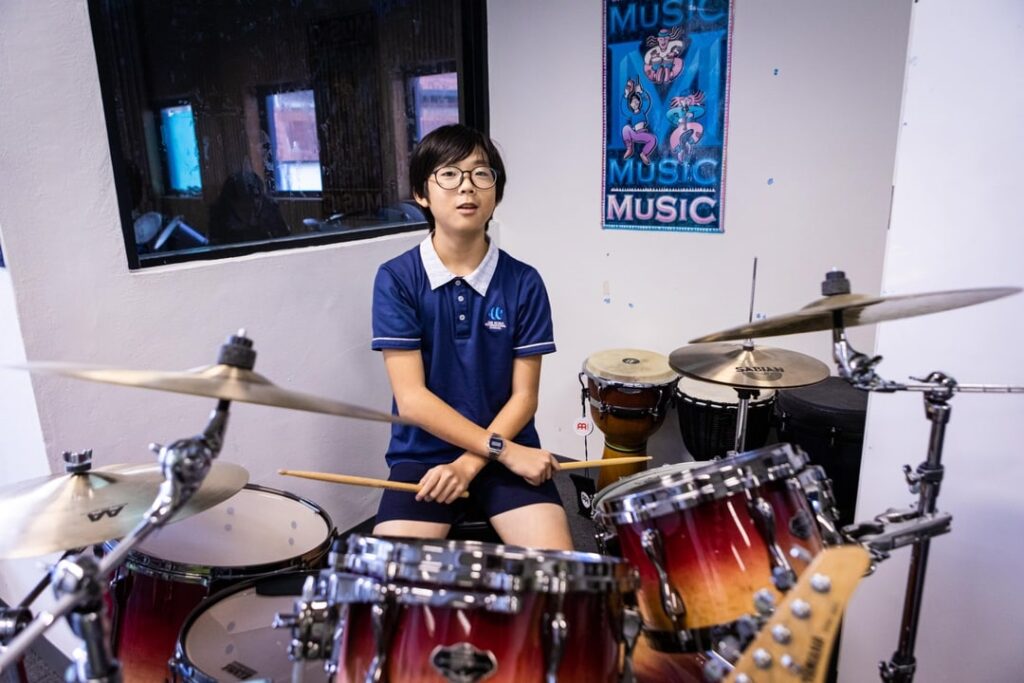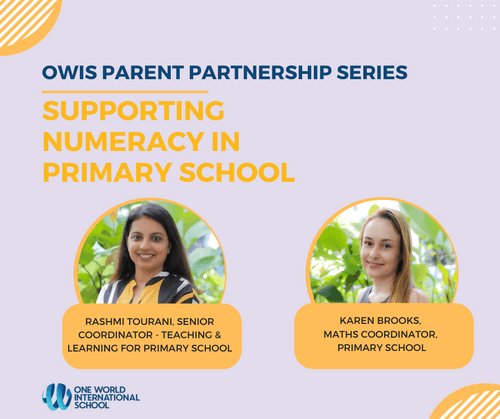Bang the Drum and Get it On – why music in our schools is so very important!
Can you imagine a life without music? It would be like a home without love. As soon as we are born we respond to the sounds around us and the first thing we hear is our mother’s voice. And that’s the same voice which sings us to sleep and hums those long-forgotten melodies which are set in our hearts. It brings back feelings and emotions, ties us to our homes and reminds us of special memories. We may share special songs with friends and families or link these sounds to our cultural traditions and festivals.
That’s all very lovely – but does music have a place in our schools? Or is it merely some kind of relaxing distraction?

Music Benefits Children of all Ages
Young children aren’t just comforted by music, they pick-up on the tones and unknowingly recognise different frequencies and melodies, too. By the time they are toddlers, they’ve instinctively developed the ability to identify tunes (tone, rhythm and melody). And this goes hand-in-hand with their language ability and development.
Primary school children are enthused by sing-along songs which involve counting spelling or sequences of events (‘one green bottle, hanging on the wall . . .’). It is a perfect way to integrate learning skills with an enjoyable, fun experience. How often do you sing along to the alphabet, even in adulthood!
Academic Benefits
More young people who have been continually exposed to music go on to college and university. They often have a wide range of both academic and practical skills which helps them throughout their studies and into their careers.
Students of music are constantly using their memory to perform. It teaches them to analyse, adjust and adapt from memory. The ability to memorise runs through all of the academic strata and will benefit students in education and beyond.
Academic achievement improves. The processes needed to read music and master an instrument demand skill and craftsmanship: students gradually learn to want to create good work instead of mediocre work. It encourages them to always take one step further; for instance learning multiple instruments or being able to read a range of complex sheet music. Once experienced, this will run through into all areas of life.
Discipline. Students will need to set aside the time to practice and rise to the challenge of mastering an instrument. It does not come easy, and patience and determination is the key to mastering the skills required. At times they may feel frustrated however it teaches them to continue and persevere.
But academic achievement isn’t the only benefit of music education and exposure. Music – and performing it in public – fires all areas of child development; intellectual, emotional, plus motor and language skills. It develops confidence and enhances sociability. It gives them something to strive for and to keep developing. It also gives them the experience of teaching others, for instance when they discuss their skills with parents, or show peers how to read music or play their instrument.
Music education heightens and stimulates academic performance, logic, and coordination. And learning to play an instrument takes all of this into a higher realm.
Cultural Benefits
Music, singing, and dance are ideal vehicles in this respect, as they key-into basic human responses at an early age, thus needing little in the way of skills or special training.
Music provides an accompanying backdrop to the cultures of different nations, providing an insight into the history, lifestyles and expectations of their peoples, seen via musical style and the content of their traditional and modern songs. Even within the same nation, there are regional variations in language and dialect which reflect historical and ethnic development. MusicIt acts as a sounding block for ideas and experiences within the classroom. Children who have come from the same country but live within different communities may have different views or ideas about a particular song or piece of music. By discussing these ideas and differences they are continuously developing their knowledge. An introduction to all these elements, within a national and international context, particularly at an early age, helps to break social barriers and develop empathy.
Social, Emotional and Life Benefits
Music helps us heal: it’s a recognised therapy in the treatment of a number of conditions and illnesses. So often a piece of music is our escape. It takes us away from the present and allows us to relax and heal.
Self-confidence develops. Performing to an audience is intimidating and being able to overcome this builds pride and a sense of accomplishment. This is reinforced by approval from peers, parents and teachers. Making it a positive experience, even if something may not go to plan, allows children to build their self worth and carry this with them throughout their lives.
Creative thinking. The ability to create and compose is part and parcel of music education. Students of the arts can more readily think laterally and recognise that there may be several solutions to a problem. It teaches them to integrate their ideas together and come to a solution.
Teamwork. Being a part of a band or orchestra teaches everyone how to work together within a structured situation where everyone is a valued individual. They may only play what feels like a small part in a concert, but when it all comes together the realisation that everyone is key embeds the importance of working as a team. It teaches them to support each other at all times for maximum harmony. Shared achievement takes on a new meaning.
Responsible risk-taking. Performing a piece in public is shrouded with anxiety and fear. Dealing with this teaches students to evaluate later-life situations in a familiar context and achieve success, thus extending their potential.
Preparation for the creative economy. Future-proof education. Investing in creative education can prepare students for a 21st-century workforce. Our new citizens need the ability to think outside the box.
Music brings so many positives to a child’s education, and at OWIS we give them vast opportunities to experience music, whether it be through learning an instrument, using song and sounds in lessons or by discussing musical experiences and what these experiences mean to them. Music is something that takes on so many forms, and it is important to ensure children experience it throughout their education.
To find out more about the music programme at OWIS, click here.
(This blog was originally written in collaboration with Ms Claire Andersen, former Head of Music, OWIS Nanyang.)














